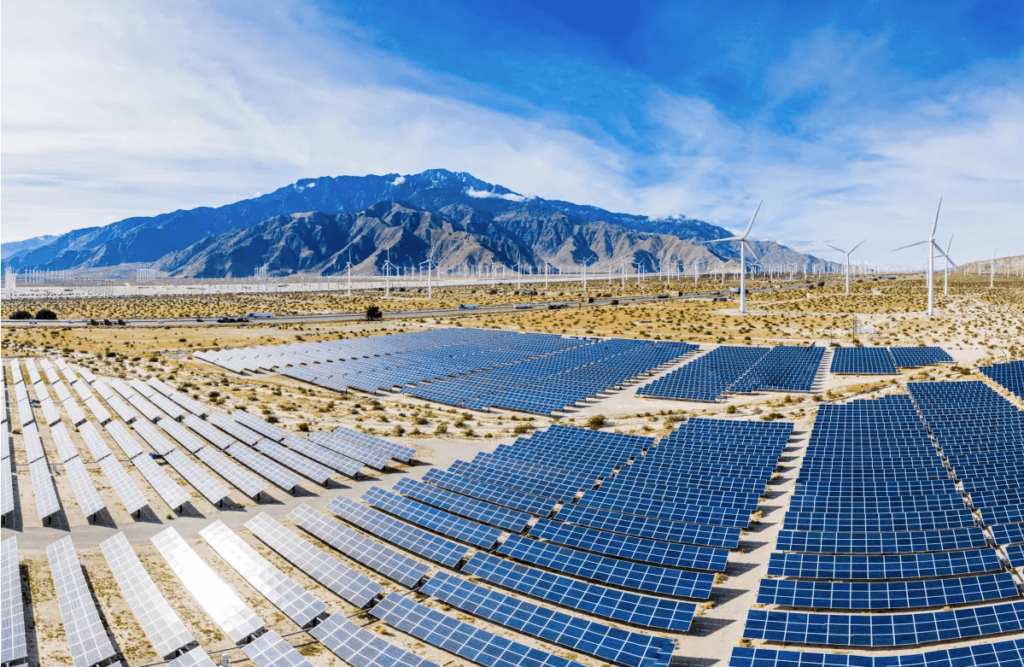Climate Now Podcast


Climate Now: May 23, 2022
How to meet electricity demand while greening the grid
Lawrence Livermore National Lab, Princeton University, and the IPCC have all published proposed climate mitigation pathways: strategies for economically reaching net-zero emissions by mid-century for California, the U.S., and the world, respectively. And they


Climate Now: May 17, 2022
Will the clean energy transition be cheaper than we thought?
The recent working paper by Rupert Way, Matthew Ives, Penny Mealy, and Doyne Farmer, Empirically grounded technology forecasts and the energy transition, suggests that the high estimates of the expense to transition to renewable energy have been inflated, and


Climate Now: May 9, 2022
Diluting dependence on Russian oil: How renewable energy can defund a war
Among the top importers of Russian oil are the EU, Germany, Italy, The Netherlands, and France. The EU accounted for 71% of oil imports from Russia 2 months after the war in Ukraine began. But cutting off oil and gas imports from Russia completely can pose gre


Climate Now: May 2, 2022
The bottom line on sustainable shipping: Can the shipping industry reach zero emissions?
If the international shipping sector were a country, it would be the sixth largest CO2 emitting nation in the world. Every year, 11 billion tons of goods – about 80% of all the goods we use or consume – reach us by ship, emitting nearly a billion t


Climate Now: Apr 25, 2022
Buried treasure: Unearthing the power of the soil carbon bank
Soil – that mixture of degraded bedrock, decomposing organic matter, and microorganisms that nourishes the root systems of plants and trees – already holds twice as much CO2 as the earth’s atmosphere and vegetation, combined. And by changing


Climate Now: Apr 19, 2022
How can water reuse help solve the global water crisis?
Today, 26% of the global population – about 2 billion people – live without reliable access to safe drinking water. And, as climate change worsens, the availability of fresh water will only decrease. By 2050, as many as 3.2 billion people could


Climate Now: Apr 12, 2022
Climate risk reporting: Why an SEC mandate makes sense
The U.S. Securities and Exchange Commission wants to standardize climate risk reporting. What does that mean? On March 21, 2022 the SEC released a proposal for a new rule: that publicly traded companies will have to provide disclosures about how the changing


Climate Now: Mar 29, 2022
Can ammonia or wind propel carbon-free shipping?
In the race for decarbonization, the shipping industry faces major challenges. Fuel is cheap, almost half the price of gasoline. And, most ships last between 20-25 years, meaning that the turnover to cleaner shipping could take far longer than road transportat


Climate Now: Mar 22, 2022
How the electricity grid works
One of the most efficient ways to get to a net-zero economy is to generate electricity from renewable sources, and then make as many things run on electricity as possible. But, as more end-use services (transportation, heating, industry) are electrified, and


Climate Now: Mar 8, 2022
A venture capitalist’s perspective on the evolution of green transportation
In 2021 alone, more than $32 billion dollars were invested in green-technology startups, a four-fold increase from five years earlier. But how far will those dollars go? Only about 25% of venture-backed startups actually make the transition from an inn


Climate Now: Feb 22, 2022
Can We Achieve 100% Electric Car Sales by 2030?
What will it take to get 100% of new car sales to be electric by 2030? Is it consumer demand? Is it political pressure? How about we just increase both? The Zero Emission Transportation Association (ZETA) is the first industry-backed coalition advocating f


Climate Now: Feb 18, 2022
How to Scale Up Carbon Capture and Storage
From 2015 to 2020, the installed capacity of renewable electricity increased 50%, reaching nearly 12% of global electricity consumption. The number of electric vehicles sold in 2021 was 13 times more than in 2015, now making up nearly 9% of the new car sales.


Climate Now: Feb 8, 2022
Is micromobility the future of urban transportation?
How can we better design our cities and suburbs so that they are centered around humans, not cars? Cars do not need to be the primary method of urban transportation, and alternatives such as public transportation and micromobility have benefits far beyond simp


Climate Now: Feb 1, 2022
An insider’s perspective on advancing US climate policy
Climate policy at the federal level is integral to mitigating the climate crisis. Unfortunately, the United States has had a hard time so far passing ambitious climate legislation. Why is that? From the outside, the situation often seems hopeless. But what doe


Climate Now: Jan 25, 2022
Re-imagining Heavy-Duty Trucking with Hydrogen and Carbon Capture
Heavy-duty, long-haul trucks – known as Class 8 trucks – account for more than 1 billion tons of carbon dioxide emissions worldwide each year. Electrification, while a practical option for most of the trucking industry (see last week’s episo


Climate Now: Jan 17, 2022
The trucking industry needs to go green. Are electric trucks the answer?
In 2019, medium- and heavy-duty trucks accounted for about a quarter of U.S. transportation emissions while representing less than 4% of vehicles on the road, according to the U.S. EPA. It is clear the trucking industry must decarbonize in order for the transp


Climate Now: Jan 10, 2022
Why all ride-sharing should go electric. And autonomous, with Dave Rubin
Ride-sharing services currently result in 69% more emissions, on average, than the trips they displace, according to a recent study by the Union of Concerned Scientists. But, if the ride-sharing vehicles were electric, it’s a whole different story. Repla


Climate Now: Dec 23, 2021
The sustainability conundrum of electric vehicles: Making and recycling EV batteries, with Andy Stevenson
Climate Now is kicking off our Decarbonizing Transportation series by addressing a question that looms over the electric vehicle market: how can we sustainably manufacture and recycle EV batteries? To learn about electric vehicle battery trends and challenges,


Climate Now: Dec 20, 2021
Green banks: How they unlock funding for climate solutions, with Bryan Garcia
The Connecticut Green Bank, the first green bank in the US, has unlocked over $2 billion in capital toward clean energy projects and other climate solutions since it was established by the state legislature in 2011. So, what is the green bank model? How does i


Climate Now: Dec 16, 2021
Ocean-Based Carbon Dioxide Removal and Geoengineering with Wil Burns
Earth’s oceans play a key role in slowing climate change, absorbing nearly a third of anthropogenic CO2 emissions. And they could, potentially, absorb more. In this episode, Climate Now explores developing methods to enhance ocean-based carbon dioxide r


Climate Now: Dec 13, 2021
Unpacking COP 26: Are we on track to solve the climate crisis, with Megan Darby
In November 2021, representatives from around the world gathered to update their climate commitments at the 26th United Nations Framework Convention on Climate Change (UNFCCC) Conference of the Parties (COP 26) in Glasgow, Scotland. The conference received sub


Climate Now: Dec 9, 2021
Scaling wind energy: What it will take to reach global net-zero, with Simon Watson
Wind energy is one of the cheapest sources of energy today, but it accounts for only ~6% of global electricity generation. To limit global warming to 2 degrees C or less, wind energy will need to scale up to about 5 times its current size. So, how can this b


Climate Now: Nov 29, 2021
Adaptation in North America: What’s happening and what needs to happen, with Beth Gibbons
Much of the focus surrounding climate action is on mitigation: how do we reduce the concentration of greenhouse gases in the atmosphere, and avoid catastrophic climate change in the coming decades? But the reality is the climate is already changing – and


Climate Now: Nov 22, 2021
How to Ensure Climate Impact Investing Actually Has an Impact with Amit Bouri
“The [investment market] we have in place now is not working for people, it’s not working for the planet, and it’s actually not working for most investors.” This is according to Amit Bouri, Co-founder and CEO of the Global Impact Invest